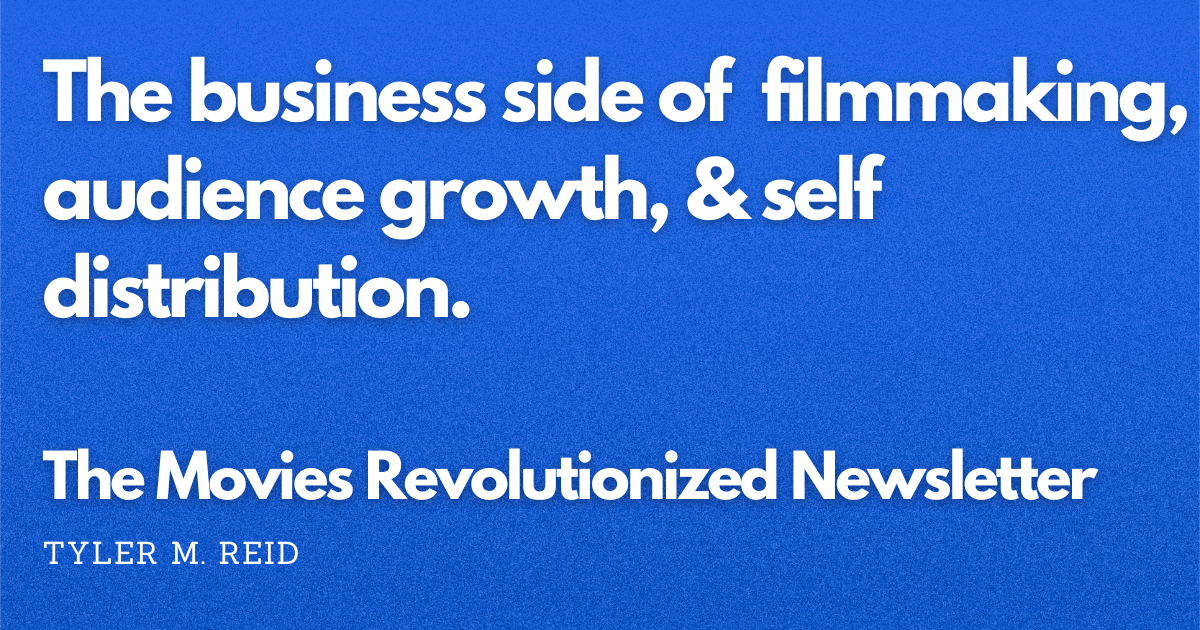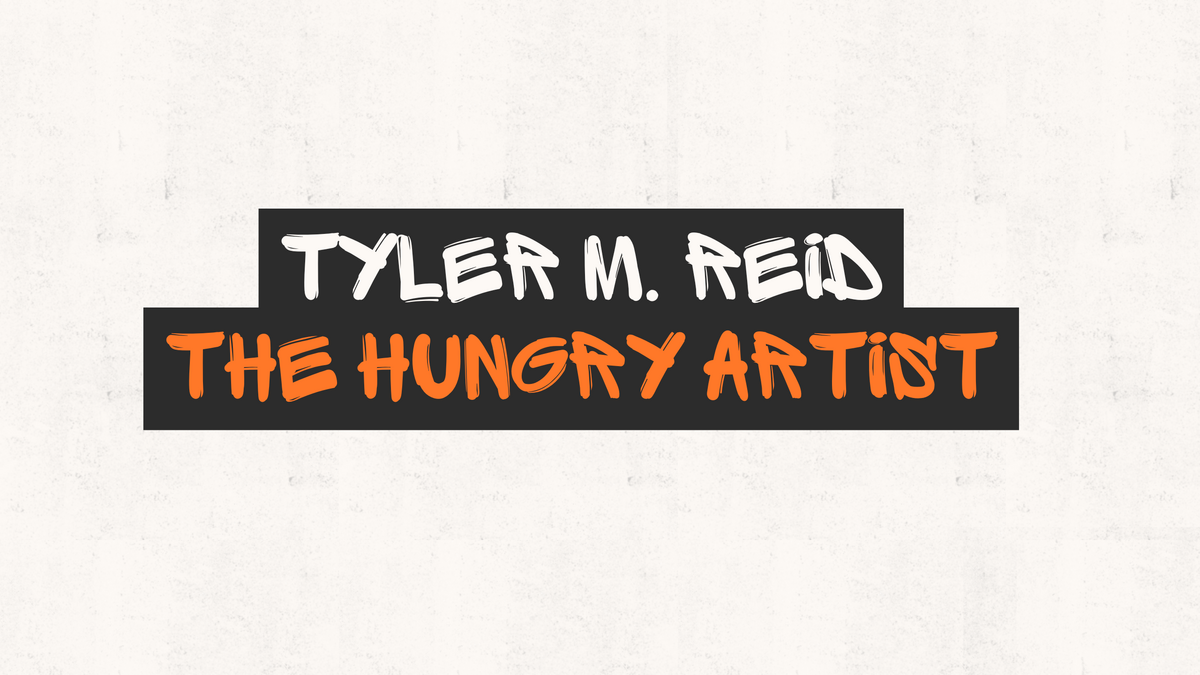Focusing on the wrong things will slow you down.
Getting a film off the ground is an exciting endeavor. All you want is a finished film! Sometimes though you can focus on the wrong things when starting out, the things that may not necessarily matter or the things that you shouldn't even be thinking about.
Even if you are not a new filmmaker and you are ready to tackle maybe your second or even third feature film, the thoughts below should help you take a step back and make sure you are thinking about the right things.
How new filmmakers generally think about making a movie:
What camera should I use?
What screenwriting software?
Where do I find investors?
What film festivals should I submit too?
How do I hire a well-known actor?
How do I get my film into major theaters?
It’s easy to focus on the big - the exciting stuff. It’s fun figuring out the right camera, it’s exciting getting investors to pay for the whole film. It’s fun to attend film festivals and it’s exciting to have well-known actors in your movie.
None of those things are going to help you get your film started…and yes, not even the investor question. Without a whole lot of other stuff in place first, an investor is not even going to glance at your project.
It is very unlikely you will get a well known actor in your first feature film, it can be more likely though for your second. However, just because you can’t get a well-known actor doesn’t mean you can’t get some recognizable talent. However, those are not the things you should first be thinking about when you are setting out to make your movie.
Setting Out to Make Your Movie
What I mean here is starting with an idea turned into a screenplay. At this point you will have your great story that is a great screenplay. If you don’t even have that yet, nothing else matters. First things first you need a great screenplay.
Now wants you have that you want to focus on the next steps, before even reaching out to cast or investors or most of your department heads, you will need some type of strategy in place. A strategy in your head is not a strategy.
It needs to be written out. This usually starts with a pitch deck. This fantastically simple document helps lay out your visual style, tone, team, and sometimes budget, schedule, audience, and distribution - it all depends on who the pitch package is for.
So….
How new filmmakers should think about making a movie:
Who is my audience?
How will I reach my audience?
How will I distribute my film to my audience?
How can I market my movie on a budget?
How little can I make my movie for?
What is my film's unique selling point (USP)?
It may seem counterintuitive at first, that one of the first question you ask yourself is "who is my audience”? Before you set out making your film you should know the people you think will want to see your film.
A quick caveat here, this is NOT to say you should make your film FOR your audience. Create the the film you want to create because no one knows what will work. This is something we see very commonly in the film industry, you see a movie come out that did very well, and then a similar type of film is released that does very poorly.
What you are trying to do is learn who your audience is from the beginning, so that you can set out finding them along the creation journey of making your film. Once the film is complete, you want a well established plan that is already being executed to get your film in front of your audience. You do not want to be figuring out who your audience is after you have made your film.
Similar But Not The Same
Though "How will I reach my audience” and “How will I distribute to my audience” sound the same, they are actually different.
The goal of reaching your audience is getting them aware of your film, in a single word, we can call this marketing. This can be free marketing like social media, it can be paid marketing like ads, it can be event marketing, like stunts, pranks, or an actual event of getting people together.
Distributing to your audience is distribution. It could go from theatrical, to certain AVOD window to eventually YouTube. No matter what, you should trying to have an idea mapped out of what you want to achieve in your distribution, especially in how your want your audience to see your film. This should be a 5 year timeline. Also know, so much can change because you are mapping this out even before you start trying to raise money from investors or get cast attached.
The Less You Ask for The More You Get
Two of the questions on that list pertain to money. In Hollywood we hear about the millions and millions of dollar budgets. You are not Hollywood. So your goal is to make your movie on the smallest budget possible - and then from there make it with as little investor money as possible.
You need to figure out how little hard cash you need to make your movie. Even if you budget your movie at $1,000,000, it doesn’t mean you need $1,000,000 cash. How much free stuff can you get from locations, to props, to sponsored meals (this was one of my favorite ways to save money, get restaurants to sponsor a catered lunch).
Asking for a million dollars cash to make your movie is hard to get - however asking for $250K is easier (but it’s still hard). That is what I mean when I say the less you ask the more you get. Asking for less may actually get you to where you need to be than asking for more and getting nowhere.
In terms of marketing, it can arguably be as expensive as the cost of the movie, if you want it to be. Your goal should be to figure out how to market your film for as little money as possible. Social media is a great way for this, but is there a way to do something public that can get an audience’s attention.
I like what the film Smile did for their public marketing, by having the cast in various places in public, sitting perfectly still - just smiling. Creepy and feels real!
You Selling to Two Different Kinds of People
First you are selling your film to investors. You are selling the IDEA of your film as a product that will return money back to them to investors. What is your Unique Selling Point (USP) for the investors?
Is it a movie that will only need a very small amount of their cash but will be made to look like it was a much higher budget? Do you have a system of distribution that is guaranteed? Does your collective cast of millions of followers on social media? What about you as the filmmaker, do you bring something unique to the table?
Then you ask the same question but for your audience. What is your film’s USP to the audience. Is it a topical film? Is it based on a true story? Understanding the USP for your film for your audience will help you determine how you plan on getting their attention and marketing to them.
Focus on the Intangibles First
Put your energy into concepts, ideas, and strategies first. Those are the things that actually will get your movie made. All the other stuff can then be decided after a well planned out and then executed strategy.
There are two ways I can help you.
I give away a free bundle with example pitches, templates, and interactive budgets that you can grab right here.
If you are on your journey to make your first short film, documentary, or even micro budget feature, this course is designed to help you find money, grow your audience, and earn an income.


